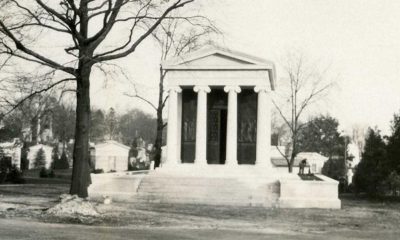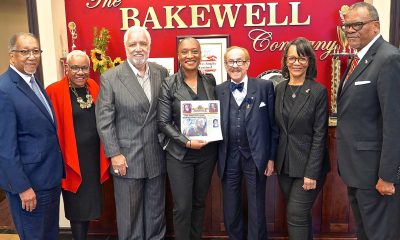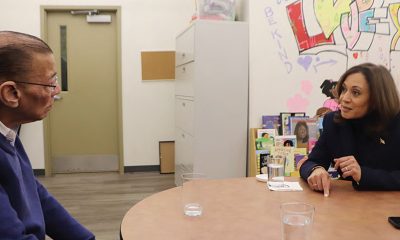The AFRO American Newspaper
D.C. Council Works to Curb Growing Gun Violence in District
THE AFRO — The D.C. Council’s Committee on the Judiciary and Public Safety held a roundtable last week to check in on two efforts to curb the growing gun violence in the District.
The D.C. Council’s Committee on the Judiciary and Public Safety held a roundtable last week to check in on two efforts to curb the growing gun violence in the District. Officials from the Office of Neighborhood Safety and Engagement and the Office of the Attorney General’s community based “Cure the Streets” initiative- two projects in D.C.’s public health based violence prevention and intervention offerings- spoke about progress, outcomes and next steps.
According to the Metropolitan Police Department, the District experienced 19 homicides this year alone. That number is a 73% increase from 11 homicides during the same time last year. In 2018 D.C. had 160 homicides.
 Caption: The D.C. Council’s Committee on the Judiciary and Public Safety held a roundtable on curbing gun violence in the District. (George Kevin Jordan)
Caption: The D.C. Council’s Committee on the Judiciary and Public Safety held a roundtable on curbing gun violence in the District. (George Kevin Jordan)
D.C.’s AG Karl Racine, Del McFadden, director of Office of Neighborhood Safety and Engagement (ONSE) and support staff gave oral testimony to the committee and other members of the D.C. Council including Committee Chair Charles Allen (D- Ward 6), Kenyan R. McDuffie (D- Ward 5), Elissa Silverman (At-Large), and Trayon White, Sr. (Ward 8). The roundtable was held at the John A. Wilson Building, 1350 Pennsylvania, N.W.
ONSE was established as part of the Mayor’s budget, and the Neighborhood Engagement Achieves Results Act (Near Act). ONSE focuses on its Pathways Program which works with 50 participants who are “at risk of being involved in violence through a health-based approach focusing on multiple services.” ONSE also provides community outreach and case management, community stabilization efforts and violence intervention and prevention tactics.
McFadden spoke of the participants in the Pathways Program who have obtained employment through their program and pointed to the over 200 families the ONSE initiative had positively impacted. The ONSE operating budget is about $2.1 million.
The Attorney General’s “Cure the Streets” Initiative was bolstered by a $360,000 infusion last year in an effort to reduce violent crime. The program is based on the CURE violence model which treats the issue like a public health based position and treats the violence like a disease, according to officials and the website.
“Cure The Streets” approaches the issue from three angles: Interrupting potential violent conflicts and disputes, identify and treat individuals at high risk for conflict with support services and change the norms around violence. They have violence interrupters that help to assuage disputes in the community.
Both initiatives would require more resources and staff in order to properly evaluate outcomes. “Cure The Streets” would like to see at least doubling the number of sites that are now in operation. Currently there are sites in Wards 5 and 8.
Allen supported adding more funding to the two initiatives and said the roundtable provides “a check-in to have the agencies talk about the good work their doing and also make sure they’re ready for that type of investment.”
“We have a budget coming up soon and I would encourage a significant investment and I know from my perspective we would be looking to increase funds. If we can increase more sites and the number of violence interrupters it would make significant differences in neighborhoods across D.C.”
The conversation got emotional during the Q & A period as Council member McDuffie declared, “we are in a state of emergency.”
When he asked Racine how much funding they acquired for the project, Racine said about $400,000, in combination with the initial money from the Council’s effort. McDuffie, added that the initial investment amount was “peanuts” when you look at how much a homicide costs families and the fiscal costs to the city at large.
Council member Robert C. White (D-At-large). said reducing crime would require a financial commitment saying, “It’s not always about money, but it does cost money to do ministry.”
The public will have an opportunity to provide testimony at upcoming hearings. For more information please contact the D.C. Council’s office for a calendar of events.
This article originally appeared in The Afro.
#NNPA BlackPress
NAACP Launches #WeAreDoneDying Campaign, Empowering Black and Brown Communities to Take Action Against Senseless Killings of African Americans
THE AFRO — The campaign is a Call-to-Action and highlights the NAACP’s policy interests and supported legislation for African Americans and people of color, a large demographic that is often left out of recovery effort conversations. The integrated and interactive content will create actionable steps for people to feel empowered by demanding action from their state’s elected officials on issues such as healthcare, education, criminal justice, economic justice, and voting rights.
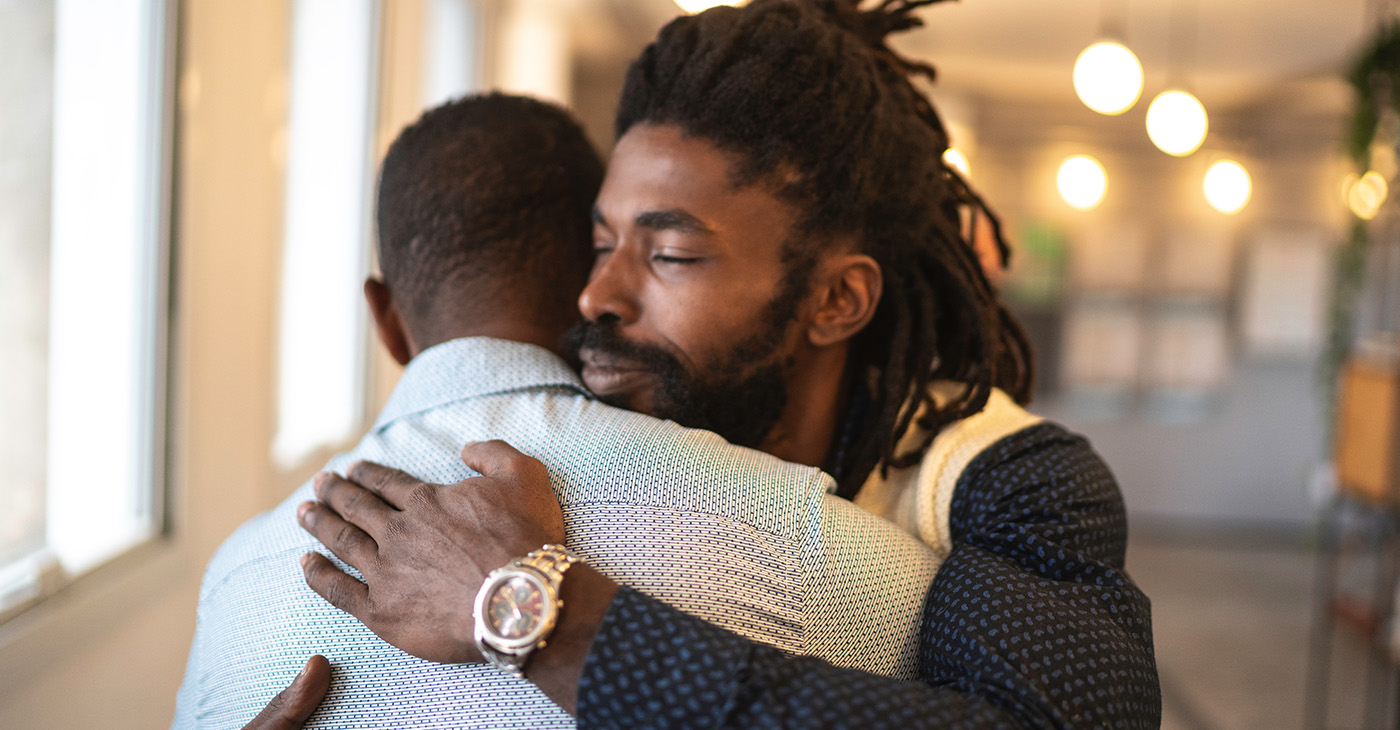
Washington, D.C. (May 7, 2020) – The NAACP, the nation’s foremost social justice organization, has launched a campaign entitled #WeAreDoneDying, aimed at exposing the inequities embedded into the American healthcare system and the country at large. From COVID-19 to running while Black in America, the abuse faced by people of color, particularly African Americans is devastating.
The campaign is a Call-to-Action and highlights the NAACP’s policy interests and supported legislation for African Americans and people of color, a large demographic that is often left out of recovery effort conversations. The integrated and interactive content will create actionable steps for people to feel empowered by demanding action from their state’s elected officials on issues such as healthcare, education, criminal justice, economic justice, and voting rights.
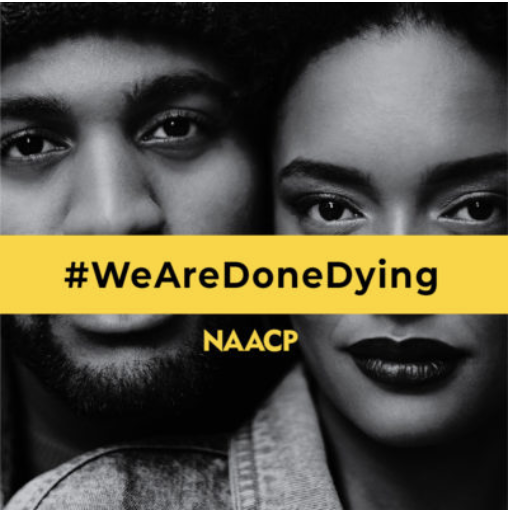
“With crumbling economic infrastructure, our community members face tough choices as access to food, good jobs, and a quality education slips further away,” said Derrick Johnson, president and CEO, NAACP. “These issues are compounded by the lack of strong leadership from the White House. In the absence of adequate guidance, Black lives are adversely affected. We will no longer stand idle as our people suffer discrimination, marginalization, and are offered as disposable for poor decisions by this Administration.”
As the incidence of COVID-19 cases and deaths rise, the Black community is experiencing the worst outcomes. With more confirmed cases and deaths than any other country, African Americans are facing the brunt of this virus. The numbers continue to rise each day while states reopen non-essential businesses with little to no evidence that the country is ready.
“The COVID-19 pandemic has magnified the deep-seated racial disparity in America embedded in all aspects of life,” said Leon W. Russell, Chairman, NAACP Board of Directors. “The NAACP Empowerment Programs’ 111 years of advocacy and fighting for the rights of Black people positions us to lead the fight for our community’s interest during this time of uncertainty.”
Learn how you can join and get involved with the campaign by visiting NAACP.org.
Founded in 1909, the NAACP is the nation’s oldest and largest nonpartisan civil rights organization. Its members throughout the United States and the world are the premier advocates for civil rights in their communities. You can read more about the NAACP’s work and our six “Game Changer” issue areas here.
This article originally appeared in The Afro.
#NNPA BlackPress
The AFRO Awarded $100,000 Grant by Facebook Journalism Project
THE AFRO — After receiving more than 2,000 applications for the COVID-19 Local News Relief Grant Program from newsrooms across every state in the US, all US territories and Washington, D.C., we are providing grants ranging from $25,000-$100,000 to help publishers continue serving communities during the coronavirus outbreak. These grant recipients were selected through a process led by the Local Media Association (LMA) and The Lenfest Institute for Journalism and with significant contributions from the Institute for Nonprofit News (INN), Local Independent Online News Publishers (LION), Local Media Consortium (LMC), and the National Association of Broadcasters (NAB). Thanks to these organizations’ partnership and expertise, we were able to set up a program to meet the immediate and timely needs of these newsrooms.
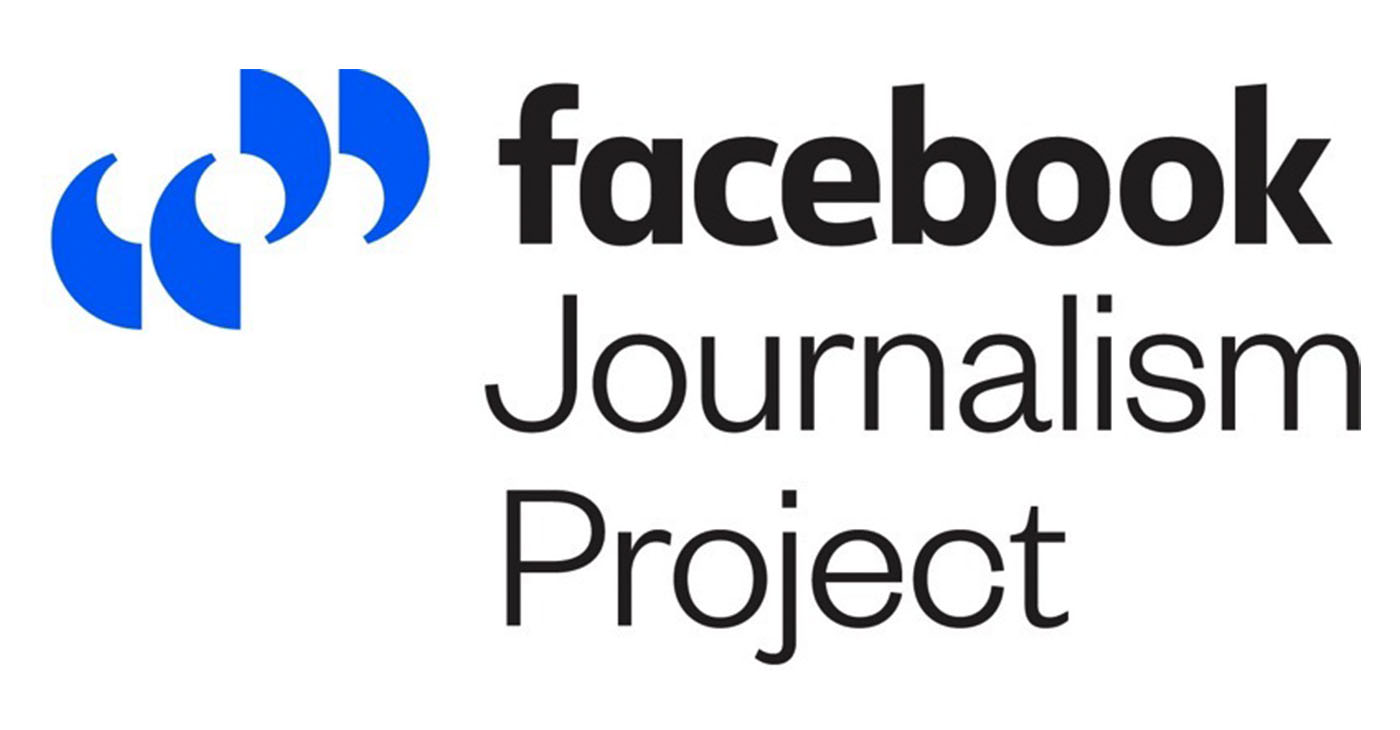
Today, Facebook is announcing that more than 200 news organizations will receive nearly $16 million in grants through the Facebook Journalism Project’s relief fund for local news. These grants stem from $25 million in local news relief funding announced in March as part of Facebook’s $100 million global investment in news. It includes:
$10.3 million being awarded to 144 US local newsrooms as part of the COVID-19 Local News Relief Fund Grant Program. The fund is supporting many publishers who are hardest hit by this crisis: nearly 80 percent of recipients are family- or independently owned and more than half are published by or for communities of color.
$5.4 million being awarded to 59 North American newsrooms that participated in Facebook Local News Accelerator programs focused on subscriptions and memberships.
Remaining funds will be used throughout 2020 to support projects focused on longer-term sustainability in local journalism. This includes $2.5 million for Report for America, helping the group place 225 journalists in 160 local news organizations for their 2020 reporting corps.
Partnering with leading industry organizations like The Local Media Association and The Lenfest Institute for Journalism to move quickly, the Facebook Journalism Project has awarded more than 600 grants across the US and Canada since the pandemic began. Additional grant programs have been launched to support journalism around the world.
COVID-19 Local News Relief Fund Grant Program
After receiving more than 2,000 applications for the COVID-19 Local News Relief Grant Program from newsrooms across every state in the US, all US territories and Washington, D.C., we are providing grants ranging from $25,000-$100,000 to help publishers continue serving communities during the coronavirus outbreak. These grant recipients were selected through a process led by the Local Media Association (LMA) and The Lenfest Institute for Journalism and with significant contributions from the Institute for Nonprofit News (INN), Local Independent Online News Publishers (LION), Local Media Consortium (LMC), and the National Association of Broadcasters (NAB). Thanks to these organizations’ partnership and expertise, we were able to set up a program to meet the immediate and timely needs of these newsrooms.
“The COVID-19 pandemic has highlighted the critical role local news plays in our communities, while simultaneously threatening their very existence. Reviewing hundreds of applications on a tight timeline both illustrated the depth of need, but also highlighted the innovation that these small, independent publishers can provide for their communities when given the resources,” said Jonathan Kealing, INN’s chief network officer. “I’m excited to see new news products and more critical original reporting in these communities, thanks to Facebook’s support.”
The pool of grant recipients is notable in several ways:
- Nearly four in five are family- or independently owned.
- Half are published by or for communities of color.
- Nearly 40 percent are digitally native publishers.
- Just over a third are non-profits.
“We’re proud to support this diverse group of publishers — many of which are family- or independently owned. Not only are these journalists working tirelessly to serve people right now — they’re focused on transformation, building innovative local news businesses that can continue to serve communities beyond the current pandemic,” said Campbell Brown, VP of global news partnerships at Facebook.
The COVID-19 Local News Relief Grant Program was designed to provide support for US local news organizations serving a critical role for communities impacted by COVID-19. Funding is intended to a) respond to immediate community needs and/or b) offset some revenue shortfalls to help publishers maintain long-term sustainability during this crisis.
Facebook Journalism Project Local News Accelerator Program
Launched in 2018 to support local news businesses in their transformation to reader revenue-driven business models, the Local News Accelerator program has grown to more than 600 participants from more than 100 newsrooms worldwide.
he program includes a three-month period of workshops, now fully virtual, led by the Accelerator’s executive director Tim Griggs, regular reports on best business practices and grants administered by the Lenfest Institute and the International Center for Journalists.
Accelerator participants from the US and Canada are receiving relief grants to help safeguard the transformation they’ve achieved over the last several years and to capitalize on new opportunities. As these news organizations continue to test and learn, we’ll share their progress, actionable tips and results on the Facebook Journalism Project website.
The coaches in the Facebook Accelerator went “above and beyond to help us, teaching practical concepts and tools that we could use right away and taking time to talk through problems. Our cohort members have been encouraging, collaborative and generous with their knowledge and experience,” said Jennifer Napier-Pearce, editor of the Salt Lake Tribune, a participant in the 2020 Subscriptions Accelerator program. “We’re so grateful to Facebook for supporting local news at such a precarious time.”
The Facebook Journalism Project will host a webinar session on Friday, May 8th at 1 p.m. EST/10 a.m. PST titled “Practical Lessons to Accelerate Your Reader Revenue Strategy.” Led by Accelerator Executive Director Tim Griggs and Accelerator Program Manager David Grant, the session will give a distilled look at key tactics and strategies drawn from Accelerator publishers. To join, register to receive information about the program here: FB.me/BootcampRegistration.
News reporting has never been more critical. We’re proud to support all these news organizations as they provide critical reporting to their local communities during this challenging time.
Sign up for the Facebook Journalism Project newsletter to receive updates on Facebook’s ongoing efforts to support the news industry during the COVID-19 crisis.
This article originally appeared in The Afro.
#NNPA BlackPress
VIDEO: THE RUN DOWN – DJ D-NICE / #Homeschool House Party
THE AFRO — Host Micha Green talks about DJ D-NICE’s online house party, and trending topics in the AFRO American Newspaper.
-

 Activism4 weeks ago
Activism4 weeks agoOakland Post: Week of March 20 – 26, 2024
-

 #NNPA BlackPress3 weeks ago
#NNPA BlackPress3 weeks agoCOMMENTARY: D.C. Crime Bill Fails to Address Root Causes of Violence and Incarceration
-

 #NNPA BlackPress3 weeks ago
#NNPA BlackPress3 weeks agoMayor, City Council President React to May 31 Closing of Birmingham-Southern College
-

 #NNPA BlackPress4 weeks ago
#NNPA BlackPress4 weeks agoCOMMENTARY: Lady Day and The Lights!
-

 #NNPA BlackPress3 weeks ago
#NNPA BlackPress3 weeks agoFrom Raids to Revelations: The Dark Turn in Sean ‘Diddy’ Combs’ Saga
-

 #NNPA BlackPress4 weeks ago
#NNPA BlackPress4 weeks agoBaltimore Key Bridge Catastrophe: A City’s Heartbreak and a Nation’s Alarm
-

 Activism3 weeks ago
Activism3 weeks agoOakland Post: Week of March 27 – April 2, 2024
-

 #NNPA BlackPress3 weeks ago
#NNPA BlackPress3 weeks agoBaltimore’s Key Bridge Struck by Ship, Collapses into Water






